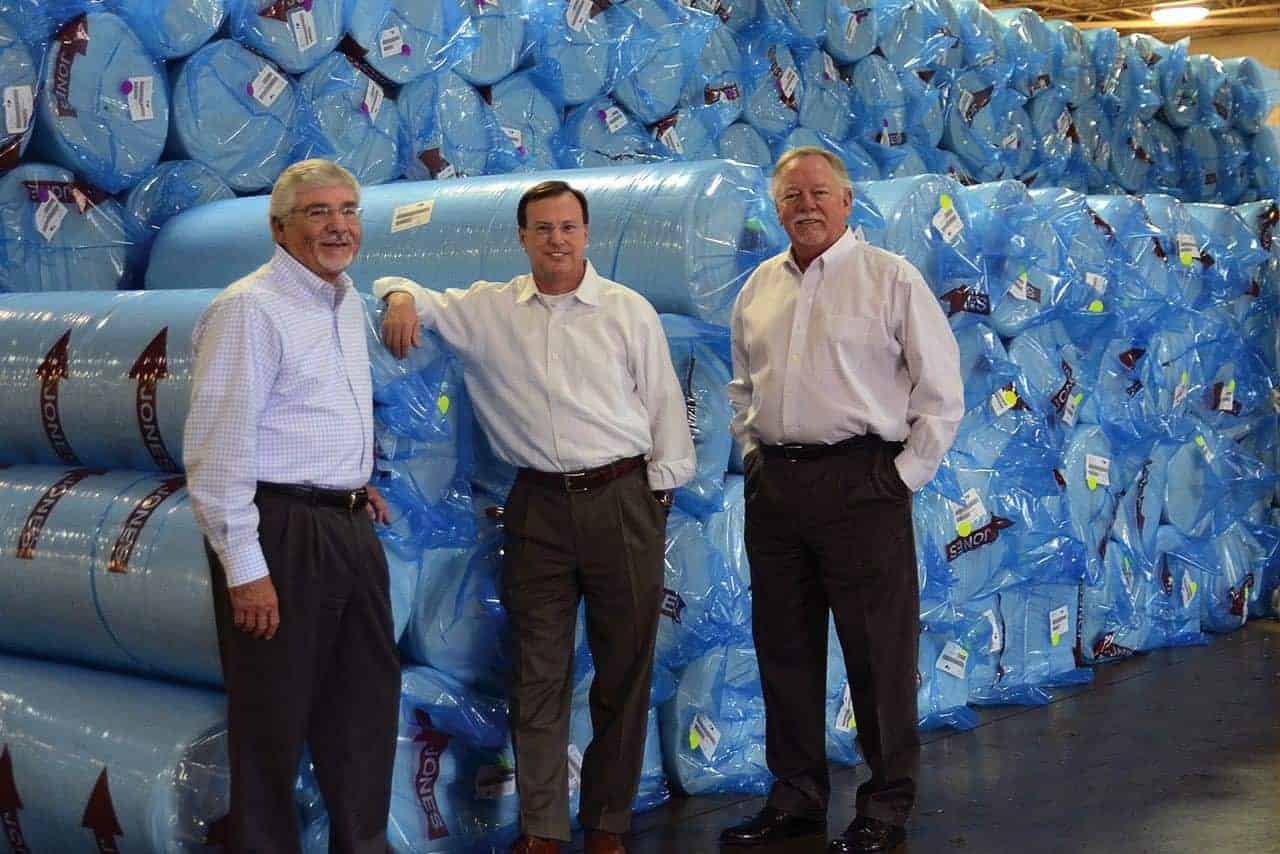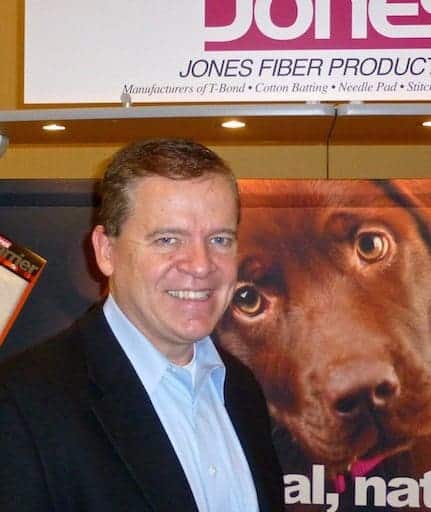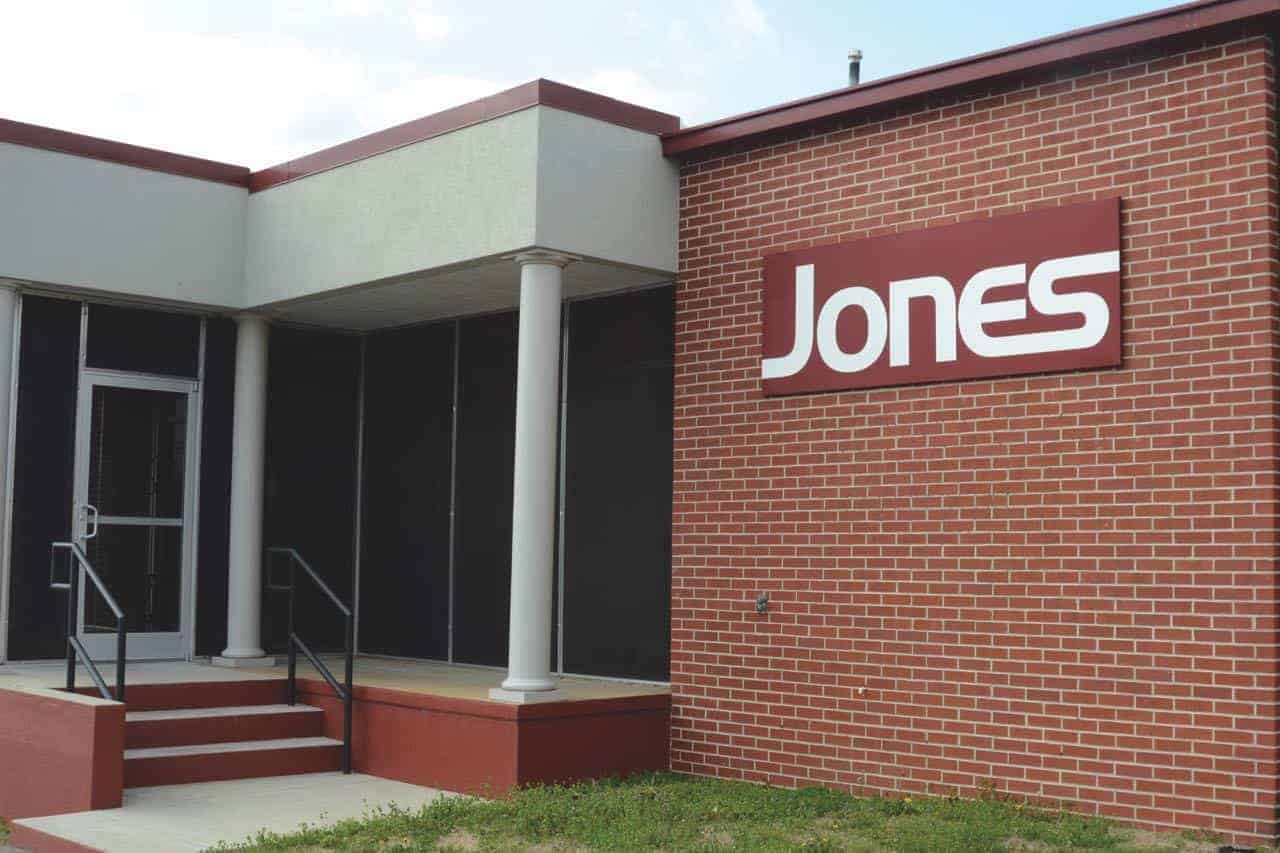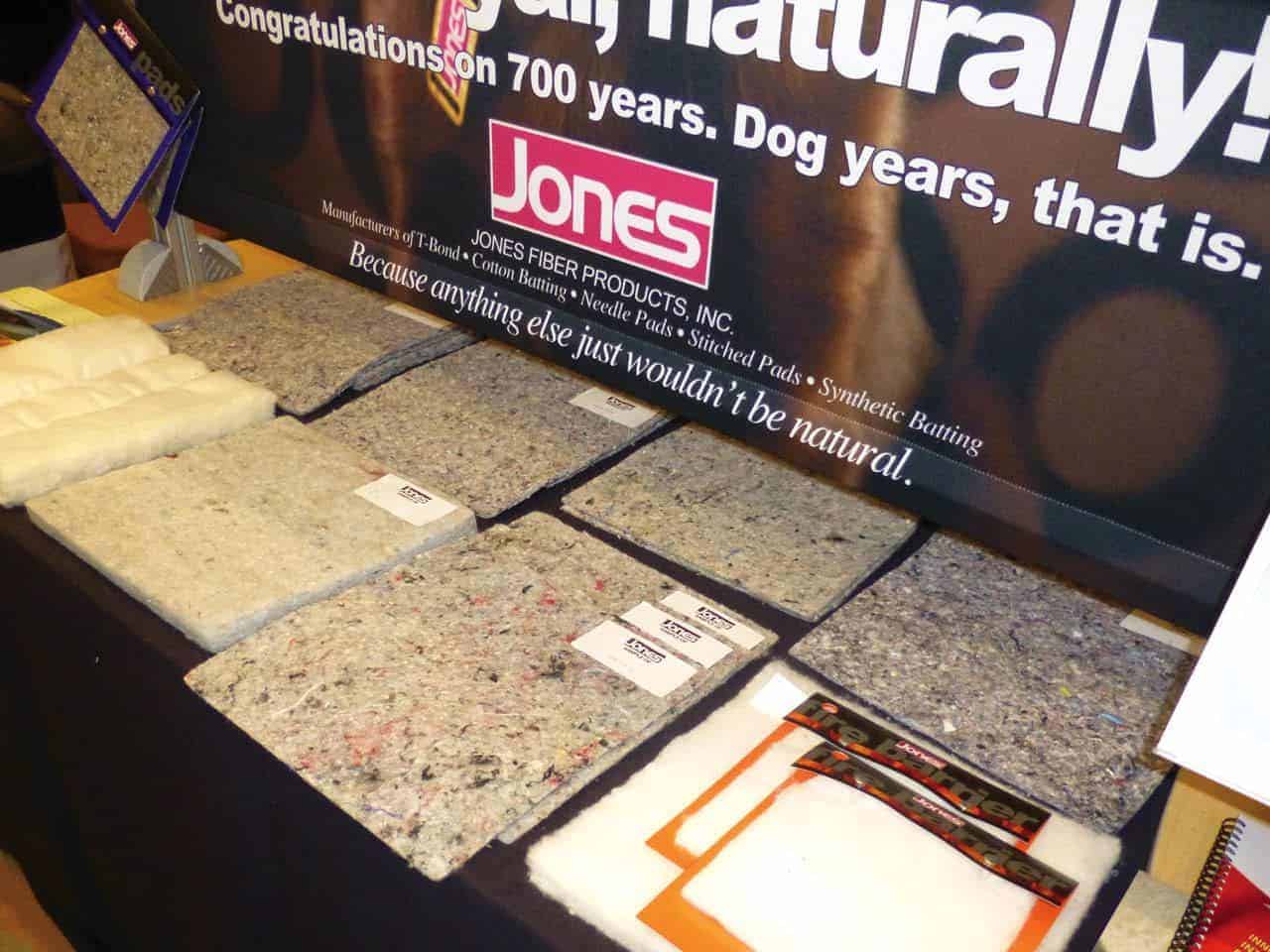| BRIEFLY | |
| Company | Jones Fiber Products Inc. |
| Headquarters | Humboldt, Tennessee |
| Specialty | Manufacturer of engineered thermally bonded natural fiber product |
| Founded | Jones Fiber Products is an offshoot of a company founded in 1936 by two brothers, Ted Jones and Ralph Jones Sr. In 1996, they bought out a competitor, Southern Wholesale Supply, and created Jones Fiber Products as an independent company. |
| Learn more | www.jonesfiber.com |
New strategic plan driven by customer, employee engagement
Six months after completing an extensive evaluation of their strategic plan, executives at Jones Fiber Products Inc. and its sister company, Jones Companies Ltd., feel they have cleared a path for future growth and profitability.
Their revised strategic plan realigns the structure of both companies to remove management and operational silos and promote additional synergies. This approach, they believe, will position the companies to continue to create innovative products for the industries they serve and facilitate expansion into new arenas.
Jones Fiber Products is an offshoot of a company founded in 1936 by two brothers, Ted Jones and Ralph Jones Sr. The brothers originally set up shop as processors of recycled textile byproducts, spinning the captured fibers into mop yarn. In 1981 they purchased the nonwovens division of Kroehler Manufacturing Co. and began offering cotton batting to the bedding industry.

From left, Chief Executive Officer Richard Ayers, Executive Chairman Ralph Jones III and President Kenny Oliver say supporting and engaging employees and customers remain top priorities for Jones Fiber Products.
In 1996, they bought out a competitor, Southern Wholesale Supply, and created JFP as an independent company manufacturing engineered thermally bonded natural fiber products.
The Humboldt, Tennessee-based companies are family-owned and professionally managed. Richard Ayers served as chief financial officer for both companies and managing director of JFP until December 2014, when he was appointed to lead both companies as chief executive officer and CFO.
“We had always taken great pride in being an entity focused on organizational and operational excellence, but we had resources that were focused on one entity or another,” Ayers says. “We wanted to use those resources to create one cross-functional management group and a senior leadership team.”
Culture of engagement
Realigning executive responsibilities has allowed both companies to “consolidate and centralize our supply chain management and to develop and implement a formalized process for engaging our associates in the activities of the company,” Ayers adds.
Associate and customer engagement is a central tenant of the Jones culture. “As part of our strategic plan, we wanted to expand our vision to focus on customer intimacy and on empowering our associates to make decisions that conform with our core values,” Ayers says.
Company executives say they want to foster close relationships with their customers so that they can better identify and meet their product and organizational needs.
“We really try to focus on the voice of the customer,” says Kenny Oliver, the president of JFP. “We don’t go out with the intent to sell, but to find out what the customer really wants and needs. We get to know their operations thoroughly and try to be proactive.”
“We want to help them achieve all of their goals and that’s not necessarily about product,” Ayers adds. “It may center on their operational excellence or associate development.”

Patrick Owens joined the company in January to fill the new position of vice president of strategic marketing and business development.
The company has decided to invest in more “human capital,” he says, “to translate the voice of the customer into the design and development of product.” To that end, a new position, vice president of strategic marketing and business development, was created, and Patrick Owens was hired in January to fill it. Prior to joining JFP, Owens spent 26 years at DuPont and served as president of ILC Dover, a Delaware-based manufacturer of highly engineered soft goods.
“A search is currently under way for a design and development engineer to assist him in this effort,” Ayers says.
All about people
Although empowering its employees has long been a key part of the Jones culture, the companies’ revised strategic plan places even more emphasis on supporting and engaging them.
“We feel there is a lot of opportunity within our associate group to expand the organization and value of the company,” he says. “Personal development and education are critical to our associates.”
In addition to endowing a college scholarship foundation for associates and their dependents, Ayers says, “we have also expended significant amounts to help fund education outside of the foundation.”
The state of Tennessee has taken notice. Last year the companies received the Chancellor’s Award for Excellence in Philanthropy from its State University and Community College System in recognition of a long history of philanthropy toward education.
Ralph Jones III is the grandson of the company’s co-founder and the executive chairman of both JFP and Jones Companies Ltd. He believes this commitment to education and corporate stewardship is anchored in core values that have existed within the organization for almost 80 years.
It’s all about people, he says. “Those machines aren’t going to run themselves. Our customers, associates and stakeholders are all individuals. We are people-oriented, quality-driven and value-focused … but dignity and integrity drive everything.”
Company programs and the involvement of associates—from the executive suite to the factory floor—in community and professional endeavors seem to prove his point. Community service is encouraged and supported. One associate spends half of each day at work and the other half on paid leave, helping teenagers avoid gang membership. Others serve in a variety of capacities in their communities, while Ayers serves on multiple boards, including the board of the International Sleep Products Association.
Counselors from Marketplace Chaplains USA, based in Plano, Texas, have been placed in all Jones facilities, where they work to meet the needs of employees and their families. “All we’re really trying to do is to connect with our employees and vendors,” Jones says.
The nuts and bolts
JFP shares manufacturing space with its sister company in Humboldt and Morristown, Tennessee, and north Las Vegas. In Tennessee, 250,000 square feet is devoted to nonwoven production, with another 55,000 square feet devoted to the product in Nevada.
Its branded T-Bond products include border and quilt panels, insulator pads and foam-replacement products. The company sells the majority of its products to the bedding industry but also services the manufacturers of furniture, caskets, and absorbent, acoustic, filtration and insulation products.
“We were the first to use low-melt polyester with cotton,” Oliver says. “Today, we use low-melt polyester with an array of fibers, but cotton-based fiber is still the core of what we do.”

Jones Fiber Products takes meeting federal 16 CFR Part 1633 regulations seriously at its plant in Humboldt, Tennessee.
JFP takes meeting federal 16 CFR Part 1633 regulations seriously. It has witnessed more than 5,000 burns since 2003 “taking meticulous notes about components,” Oliver says.
It also works closely with its customers to help them meet FR regulations. “We have an extensive book of (mattress) prototypes that we share with customers,” Oliver adds. “We also supply a consultant, at our cost, to make sure that the prototypes are being used properly and that their record-keeping is on par with Consumer Product Safety Commission expectations.”
“Top-drawer” service
Meeting its customers’ expectations for high-quality, targeted products is a driving force at JFP. “Our customer service is top drawer, and when we commit to something we always carry through,” Oliver says.

The company’s branded T-Bond products include border and quilt panels, insulator pads and foam-replacement products.
The company’s commitment to quality is reflected in its return rate. “Our return rate at JFP for 2014 was 0.0049%,” Ralph Jones III says. “Not too shabby!”
Company executives believe that JFP’s growth is predicated on maintaining these same high standards of quality, while working diligently to create the next generation of innovative products for the bedding industry. “We feel that bedding is a mature market, and we have to think beyond incremental values and start thinking about future innovations,” Oliver says.
While it expects that bedding will be the company’s core business long into the future, JFP’s management is putting increasing emphasis on developing products for the adjacent industries it already serves and moving into additional markets. This strategy, Ayers says, should help to offset potential revenue losses from “innovation in other textile areas or development of other kinds of materials that can be used in bedding.”
It also might help to mitigate what Ayers describes as the biggest challenges he faces. “The commoditization of products and market conditions that dictate that price is more important than anything else are a huge challenge,” he says.
Ayers is confident, however, that the company’s strategic advantages will pave the way for solid growth. “It all goes back to our core values,” he says. “We are people-oriented, quality-driven, value-focused and results-oriented. We take these values very seriously.”



